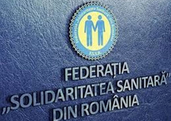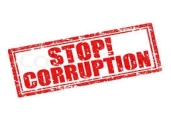Romania's paper and cardboard industry is grappling with excessive energy costs and massive exports of waste paper, which deprive local producers of an essential resource, complain the representatives of the Pulp and Paper Industry Employers' Association (ROMPAP) - an umbrella organization that represents 23 companies in the sector, with a cumulative turnover of almost 1 billion euros and more than 5,000 direct jobs.
According to the cited source, in Romania, electricity and natural gas prices are consistently higher than in other European and non-EU countries, a reality that undermines the competitiveness of local producers.
"By its nature, the paper industry is energy-intensive. In Romania, electricity and natural gas prices are consistently higher than in other European and non-EU countries, a reality that directly affects the competitiveness of local producers, who are forced to operate with significantly higher energy costs than foreign competition. The impact is all the greater as energy can represent on average up to 30% of the total production cost of a paper or cardboard factory," said ROMPAP executive director Ionel Ciucioi.
According to him, the removal of the electricity price cap without including the paper industry on the list of vulnerable sectors has further aggravated the situation.
"For comparison, in other EU countries, high-consumption industries benefit from support through compensation schemes, tax breaks or access to long-term bilateral contracts. Given that approximately 90% of the paper packaging used in Romania is produced locally, any increase in production costs is automatically transferred into the final prices and affects entire industrial chains - from the food and retail sectors to agriculture and logistics. This is not the first time that the industry has faced such pressures. Three years ago, certain factories were forced to temporarily suspend their activity due to prohibitive energy costs. Alarm signals have already been raised," Ionel Ciucioi explained.
Tackling the other structural issue faced by the industry, specifically the lack of access to raw materials, he said that of the approximately 700,000 tons of waste paper collected annually in Romania, over 30% is exported, especially to Turkey - which took in over 90,000 tons in 2023 and 30,000 tons in Q1 2025 alone. "On the other hand, Turkey has instituted a protection tax of 87 dollars/ton for paper imports, practically blocking the access of Romanian production to its market. In parallel, it controls its own waste paper exports through an approval system, which means that this raw material is processed in the country and has a low cost. With all these advantages, Turkish companies manage to pay significantly higher prices for waste paper imports from Romania, thus influencing the price in our country. These imbalances seriously affect the competitiveness of all Romanian producers and endanger jobs and investments," added the ROMPAP executive director.
The pulp and paper industry's employers' association suggests a balanced approach, that should take into account several factors.
"As far as energy is concerned, the inclusion of the industry on the list of vulnerable sectors and implementing support mechanisms could contribute to maintaining competitiveness. The experience of other European countries provides models of compensation schemes or tax facilities for energy-intensive industries. For raw material flows, the development of mechanisms for prioritizing the internal need for waste paper could support recycling goals and the efficiency of the circular economy. The dialogue between authorities and the industry remains essential for the development of coherent policies that balance economic competitiveness with sustainability goals," the document states.
According to the latest report by the European Paper Recycling Council (EPRC), Europe reached a recycling rate of 75.1% in 2024, and pursues a target of 76% by 2030.
According to the same EPRC report, 6 million tons of waste paper were exported from Europe in 2024 to third countries such as India, Vietnam or Turkey. Also, paper and cardboard consumption in the EU increased by over 5%. This dynamic strains the market and reduces the domestic availability of waste paper - an essential resource for the circular economy, the release shows.
































Comentează